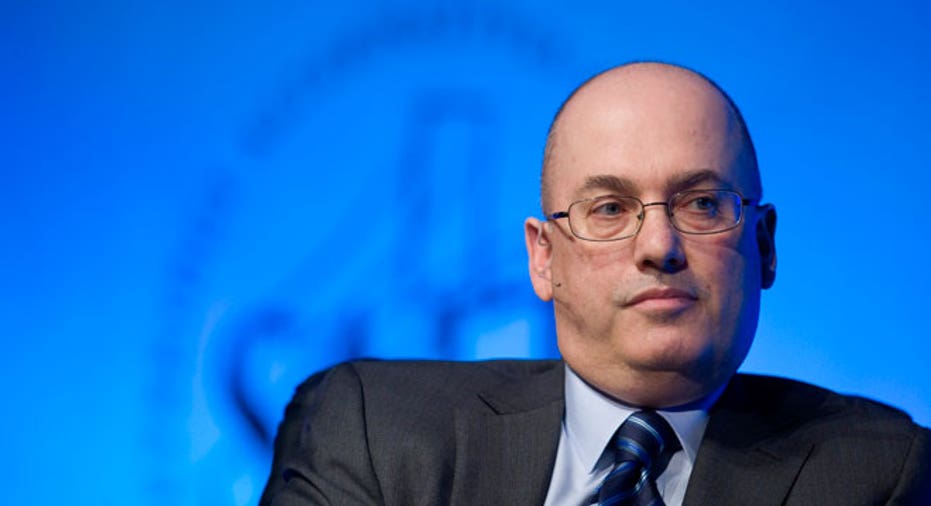SAC Capital's 'Code of Silence'

Federal prosecutors who have been chasing SAC Capital Advisors founder Steven A. Cohen for the better part of a decade have made no secret of their belief that Cohen’s firm depended on illegal inside information for profits in the same way a dairy farm depends on cows for milk.
Without the former there would be no latter.
In its criminal indictment of the firm the government alleged that from the earliest stages of SAC’s hiring process, prospective fund managers and research analysts were vetted for their ability to cultivate sources who could feed them insider tips that would help SAC get “an edge” on its competition.
In other words, insider trading was systemically ingrained within the firm’s business model.
To date, eight former SAC employees have either pleaded guilty or been convicted of insider trading and the firm itself pleaded guilty in November to criminal charges related to securities fraud.
At this point, the various indictments, depositions and court transcripts that describe in painstaking detail the clearly rampant insider trading at SAC could fill a law library.
What’s missing from those mountains of legal documents is any clear explanation -- or even a plausible theory -- as to why the government has so far failed to bag its primary target: Steven A. Cohen.
And, without putting too fine a point on it, it is absolutely astonishing -- a bit surreal, even -- that after all the indictments, two full trials that ended with convictions of former SAC employees (Michael Steinberg in December and Mathew Martoma last week) and $1.8 billion in fines and penalties, the government appears no closer to nailing Cohen than when its pursuit began nearly 10 years ago.
Although he faces a civil suit filed by the Securities and Exchange Commission, Cohen, who has repeatedly denied wrongdoing, has yet to be charged with a criminal offense.
Why?
Code of Silence
The reason tossed around most often is that Cohen has simply purchased the silence of his former employees, most notably Martoma, whose legal expenses were reportedly covered by SAC.
Martoma and Cohen spent 20 minutes on the phone in July 2008 shortly before SAC began unloading its huge positions in drug companies Elan (NYSE:ELN) and Wyeth, allowing the firm to avoid losses and gain profits to the tune of $275 million, according to prosecutors.
No one knows what the two men discussed in that conversation, and neither is saying.
Maybe they discussed how much Martoma’s silence would cost in the event he was caught trading on inside information. Probably not, though, and in any case that line of reasoning seems too simple.
It seems clear that implicit within the firm’s culture of insider trading was also the unspoken maxim that no trail should lead to Cohen. Also understood, evidently, was that the code of silence would remain intact even if you were busted for insider trading.
A similar code was abandoned by Mafiosi wise guys decades ago. Yet through some potent mixture of deep loyalty and perhaps even deeper pockets, Cohen seems to have maintained an intense level of loyalty among his employees, even those facing lengthy prison terms like Steinberg and Martoma.
Obviously, Cohen is also very smart.
A veteran Wall Street trader familiar with SAC’s operations noted how Cohen had insulated himself by “balkanizing” the firm into various sector “fiefdoms” that could allow him to plausibly assert that he had little direct control over the day-to-day operations of those units.
Martoma, for example, worked for an SAC unit called CR Intrinsic Investors. Another SAC unit was dubbed Sigma Capital Management and the third trading unit was the flagship SAC Capital.
Another factor noted by the trader -- as well as by federal prosecutors in their indictment of the firm -- is that SAC had built up an elaborate compliance operation to which it could point in the wake of allegations of insider trading and say “See? We’ve done all we could to prevent these sort sorts of shenanigans.”
The federal indictment suggested, however, that the SAC compliance office was more useful in helping SAC employees avoid detection of insider trading rather than avoiding the practice in the first place.
Erosion of Trust
What’s more, prosecutors know that anyone they line up to testify against Cohen -- inevitably a former employee now facing charges of insider trading -- will have serious credibility issues that will have to be reconciled to a jury.
Cohen has also been aware for years that he’s under the government microscope and, smart fellow that he is, has apparently participated in no damaging e-mail exchanges or cell phone conversations. None that have come to light, anyway.
Or maybe he didn’t do anything. Perhaps Steinberg, Martoma and the six other former SAC employees who have pleaded guilty were rogue traders operating on their own outside of Cohen’s knowledge, as the firm has asserted. Maybe…
In any case, the larger problem with the government’s inability to build a case against Cohen is the perception that if you’re rich and powerful enough you can get away with anything, that the rules don’t apply to you. Certainly that perception has been widespread in the wake of a slew of massive settlements that have allowed one big bank after another to sweep away all manner of illegal activity ranging from mortgage fraud to rigging interest rates to enabling Bernard Madoff's massive Ponzi scheme.
That perception only serves to further erode the public’s already fragile trust in U.S. securities markets.



















